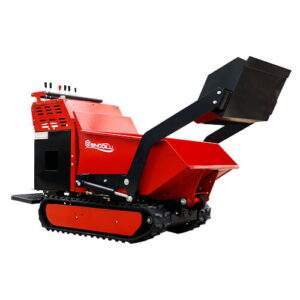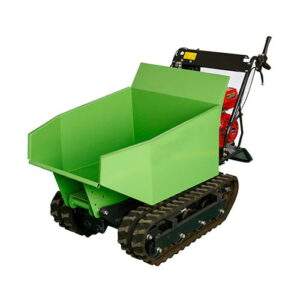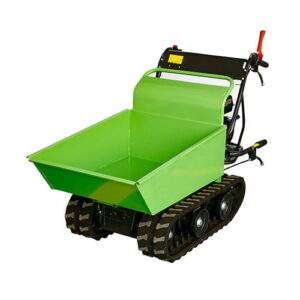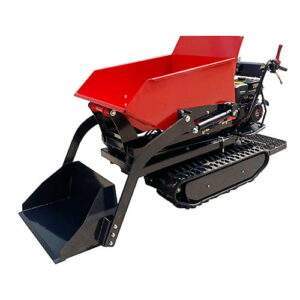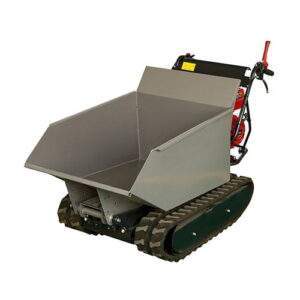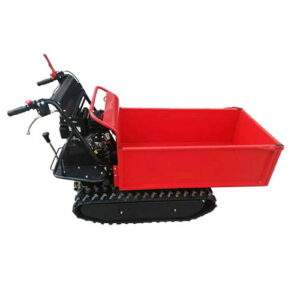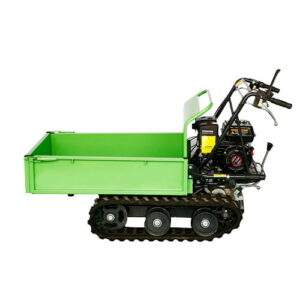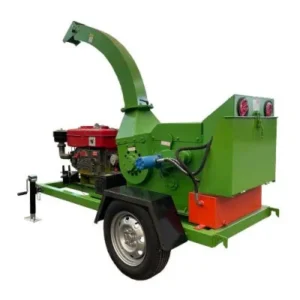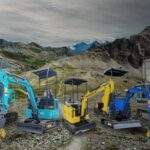How to Choose the Right Dumper for Sale: A Comprehensive Guide
Introduction
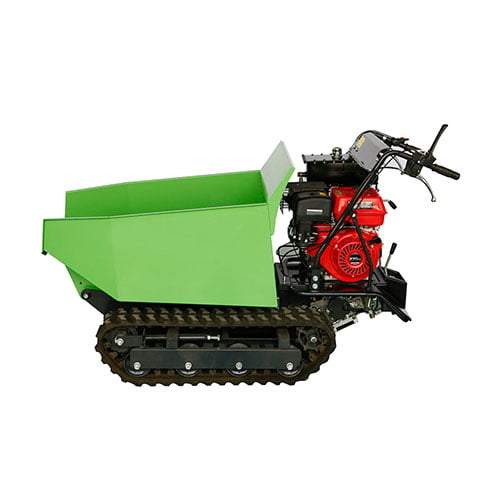
In the realm of construction and industrial projects, having the right equipment can make all the difference. When it comes to moving materials efficiently, a dumper is an indispensable tool. However, with a wide array of dumpers available for sale, choosing the right one can be a daunting task. In this comprehensive guide, we’ll delve into the key factors to consider when selecting a dumper for sale, ensuring that you make an informed decision that meets your project requirements.
Understanding Your Project Needs
Before delving into the intricacies of dumpers, it’s imperative to conduct a comprehensive assessment of your project requirements. This entails taking into account several critical factors that will significantly influence your dumper selection process.
Firstly, consider the nature of the materials that will be transported using the dumper. Are they bulky aggregates, loose soil, or perhaps fragile materials? Understanding the specific characteristics of the materials involved will help determine the appropriate type of dumper required for efficient handling and transportation.
Next, evaluate the terrain of your worksite. Is it relatively flat and stable, or does it present challenges such as uneven ground, steep slopes, or soft soil? The terrain conditions will impact the choice of dumper, as certain models are better suited for navigating rough terrains while others excel in confined spaces or on paved surfaces.
Another crucial consideration is the required load capacity of the dumper. Assess the volume and weight of materials that need to be transported per trip to ensure that the selected dumper can accommodate the anticipated loads without compromising safety or efficiency.
Furthermore, analyze the frequency of use expected for the dumper. Will it be utilized on a daily basis for intensive construction projects, or will it serve occasional needs for smaller-scale tasks? This assessment will help determine the level of durability, reliability, and performance required from the chosen dumper model.
.
Types of Dumpers
The market offers a diverse range of dumpers, each meticulously engineered to cater to specific applications and industry needs. Understanding the nuances of these different types is paramount to making an informed decision when selecting the most suitable dumper for your project.
Articulated Dumpers: These robust machines are characterized by their articulated chassis, which allows for enhanced maneuverability, especially in tight spaces and uneven terrains. Articulated dumpers are ideal for large-scale construction projects, such as highway construction, mining operations, and land reclamation projects. Their exceptional off-road capabilities make them indispensable for navigating challenging terrains with ease and efficiency.
Mini Dumpers: Compact and agile, mini dumpers are designed for versatility and maneuverability in confined spaces. With their smaller footprint and lightweight construction, they excel in landscaping projects, residential construction sites, and backyard renovations. Mini dumpers are prized for their ability to access tight spaces inaccessible to larger machinery, making them indispensable for urban construction and renovation projects.
Track Dumpers: Equipped with tracks instead of wheels, track dumpers offer superior traction and stability, particularly in soft or muddy terrains. These rugged machines are well-suited for forestry operations, agricultural applications, and wetland restoration projects. Their low ground pressure minimizes soil compaction and environmental impact, making them the preferred choice for sensitive ecosystems and conservation efforts.
Key Features to Consider
When assessing dumpers available for sale, it’s essential to scrutinize various features that significantly impact their performance and efficiency. These key attributes not only determine the effectiveness of the dumper but also ensure that your investment delivers maximum value. Let’s delve deeper into the critical features you should prioritize when evaluating dumpers for sale:
Engine Power: The engine serves as the powerhouse of the dumper, providing the necessary propulsion to handle heavy loads and traverse challenging terrains. When considering engine power, factors such as horsepower, torque, and fuel efficiency should be taken into account. Opting for a dumper with sufficient engine power ensures optimal performance and productivity in various operating conditions.
Load Capacity: The load capacity of the dumper dictates its ability to transport materials efficiently and safely. Assessing the maximum payload capacity of the dumper is crucial to ensure that it can accommodate the volume and weight of materials typically encountered in your projects. It’s advisable to choose a dumper with a slightly higher load capacity than your anticipated requirements to account for potential fluctuations in workload.
Maneuverability: The dumper’s maneuverability is paramount, particularly in confined spaces or challenging terrain. Features such as articulated steering, compact design, and responsive controls enhance maneuverability, enabling the dumper to navigate tight corners, narrow pathways, and uneven surfaces with ease. Prioritizing maneuverability ensures enhanced productivity and operational flexibility on the job site.
Budget Considerations
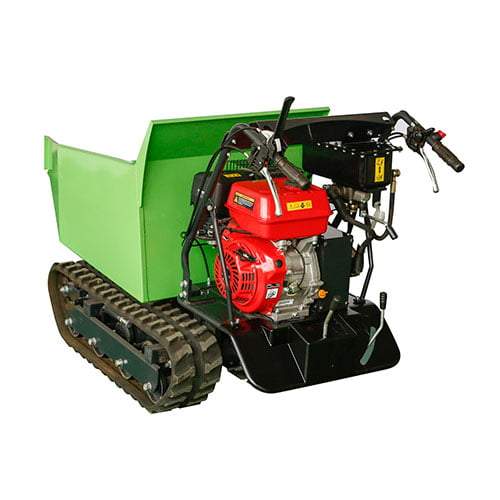
Budget considerations are undeniably pivotal in the decision-making process when acquiring equipment like dumpers. However, the true financial wisdom lies not just in focusing solely on upfront costs but also in evaluating the long-term implications of your investment. Let’s delve deeper into the multifaceted aspects of budget considerations when purchasing dumpers:
Initial Investment vs. Total Cost of Ownership: While it may be tempting to opt for the cheapest dumper available to minimize upfront expenses, it’s essential to weigh this against the total cost of ownership (TCO). A seemingly affordable dumper may incur higher maintenance and repair costs over its lifespan, ultimately outweighing the initial savings. By investing in a higher-quality dumper upfront, you can potentially mitigate long-term expenses associated with frequent repairs and downtime, resulting in significant cost savings over time.
Maintenance and Repair Costs: Assessing the maintenance and repair requirements of different dumper models is crucial in determining their overall cost-effectiveness. Lower-priced dumpers may entail higher maintenance and repair costs due to inferior build quality or substandard components. Conversely, investing in a higher-quality dumper with robust construction and reliable components may result in lower maintenance costs and fewer repair issues, translating into long-term savings and improved operational efficiency.
Operational Efficiency and Fuel Economy: Consider the operational efficiency and fuel economy of the dumper models under consideration. While a more fuel-efficient dumper may command a higher upfront price, it can lead to substantial savings in fuel expenses over time, particularly for projects with extensive usage requirements. Additionally, efficient dumpers often boast enhanced productivity and reduced operating costs, further bolstering their long-term cost-effectiveness.
Evaluating Seller Reputation
Choosing the right seller is as important as selecting the right dumper. Opting for reputable sellers ensures product quality, reliable customer support, and transparent transactions. In this section, we’ll discuss strategies for evaluating seller reputation, including reading reviews, checking certifications, and assessing after-sales services. By partnering with a trustworthy seller, you can enhance your purchasing experience and minimize risks associated with buying a dumper for sale.
| Strategy | Details |
|---|---|
| Reading Reviews | – Check customer feedback and ratings on various platforms.<br>- Look for patterns in positive and negative reviews.<br>- Focus on comments about product quality, customer service, and reliability. |
| Checking Certifications | – Verify if the seller has relevant industry certifications and accreditations.<br>- Confirm compliance with industry standards and regulations.<br>- Ensure certifications are from reputable organizations. |
| Assessing After-Sales Services | – Evaluate the availability and quality of after-sales support.<br>- Look for warranties, service agreements, and maintenance plans.<br>- Assess the responsiveness and helpfulness of the customer support team. |
| Reviewing Business History | – Investigate the seller’s history and years of operation.<br>- Check for any legal issues or complaints against the seller.<br>- Look for evidence of a stable and reputable business. |
| Requesting References | – Ask the seller for references from previous customers.<br>- Contact these references to inquire about their experiences.<br>- Focus on aspects like product reliability, service quality, and overall satisfaction. |
| Comparing Multiple Sellers | – Obtain quotes and information from multiple sellers.<br>- Compare pricing, product features, and service offerings.<br>- Look for sellers who provide transparent and detailed information. |
FAQ
Q: What is the typical lifespan of a dumper?
A: The lifespan of a dumper varies depending on factors such as usage intensity, maintenance practices, and environmental conditions. However, with proper care and maintenance, a dumper can last for several years, providing reliable service throughout its lifespan.
Q: Are there any financing options available for purchasing dumpers?
A: Yes, many sellers offer financing options to facilitate the purchase of dumpers. These options may include lease-to-own programs, equipment financing loans, or flexible payment plans. It’s advisable to explore different financing options and choose one that aligns with your financial goals and preferences.
Q: How can I ensure the safety of dumper operations on my worksite?
A: Ensuring the safety of dumper operations involves implementing proper training programs for operators, conducting regular equipment inspections and maintenance checks, adhering to safety guidelines and regulations, and providing personal protective equipment (PPE) to workers. Additionally, selecting dumpers equipped with advanced safety features can further enhance worksite safety and mitigate risks.
Conclusion
Selecting the right dumper for sale requires careful consideration of various factors, including project needs, dumper types, key features, budget constraints, and seller reputation. By following the comprehensive guide outlined above, you can navigate the purchasing process with confidence and make an informed decision that meets your project requirements. Remember to prioritize functionality, reliability, and long-term value when selecting a dumper, ensuring optimal performance and efficiency in your construction or industrial projects.

